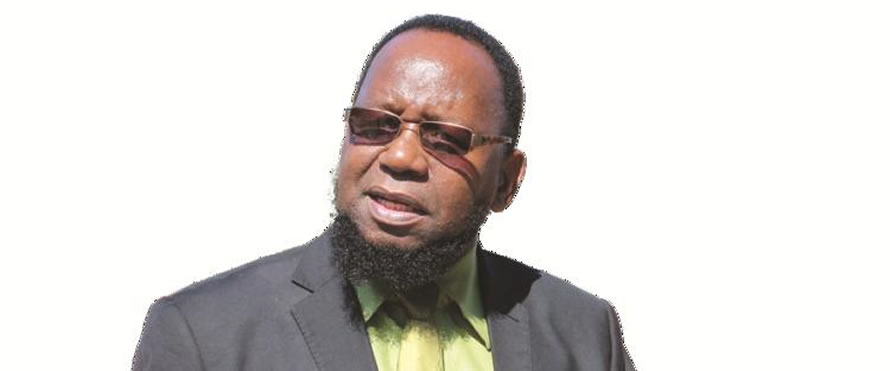
The Sunday News

 Robin Muchetu and Vusumuzi Dube Sunday News Reporters
Robin Muchetu and Vusumuzi Dube Sunday News Reporters
THE dismal performance of pupils in science subjects will continue to dog the Matabeleland region if nothing is done to address the shortage of laboratories and pure science teachers, amid reports that only two schools in Bulawayo have science labs for A-level while Matabelaland North has no qualified A-level Physics and Chemistry teachers.
Investigations by Sunday News have revealed that the region’s three provinces — Bulawayo, Matabeleland North and South — are the hardest hit by a shortage of pure science teachers and laboratories in the country with 380 high and secondary schools in the region having less than 12 A-level laboratories.
The region is in need of 900 maths and science teachers with Matabeleland North which has 120 schools being the hardest hit as the province does not have a single qualified pure science teacher for A-level.
The situation leaves pupils in the region at a disadvantage when compared to their colleagues in other regions, with institutions of higher learning having tightened their screws on mathematics being a prerequisite for enrolment.
Confirming the latest development, Primary and Secondary Education Minister Dr Lazarus Dokora said they were working on rectifying this by employing more teachers and slowly ridding the system of unqualified teachers.
“It is no secret that the country requires over 1 500 Science and Mathematics teachers. The posts are vacant and we want to fill these posts. It is unfortunate, however, that a bulk of this figure, close to 60 percent, is required in the Matabeleland region.
“However, as a ministry we are working to reduce this figure. In most cases you find that we have to employ temporary teachers to cover up at schools where there won’t be any qualified teacher at all, which is not fair to the learner because although these will be qualified in their respective fields they are not qualified as teachers,” said Minister Dokora.
He said one of the reasons the Government was embarking on an audit of the profession was to come up with the exact figures of unqualified teachers in the system.
The acting PED for Bulawayo province, Mr Mathias Luphahla, revealed that there were only two schools in the city that were equipped with A-level science laboratories.
“In Bulawayo we only have Mpopoma and Founders high schools that have the required labs for A-level and that in itself shows you how worrying the situation is,” said Mr Luphahla.
The city has a total of 48 high schools which offer A-level and six secondary schools.
Matabeleland South Province which has 56 high schools and 150 secondary schools has just under 10 schools with A-level laboratories, according to the acting PED, Mr Rueben Mabhena.
“Through the Gwanda Community Share Ownership Trust we have managed to get five new Advanced level laboratories at Ntepe, Sibona, Selonga, Mzimuni and Gungwe schools. They are fully furnished and are waiting to be commissioned this year.
“In the province we lost teachers to South Africa, Botswana just to name a few, our qualified Mathematics and Science teachers in Mangwe literally walked across into Botswana to seek greener pastures,” said Mr Mabhena.
He said the province was short of 77 Science and 74 Mathematics teachers.
Mr Mabhena revealed that the O-level pass rate for Maths in Matabeleland South in 2014 was 18,2 percent while in sciences it stood at 22,5 percent.
Matabeleland North Provincial Education Director (PED) Mrs Boithatelo Mnguni revealed that the issue was so critical that many schools that were granted A-level status were failing to offer sciences because there were no teachers to teach pure sciences like Physics and Chemistry.
“We have no teachers for Advanced level sciences; we are concerned about this issue. The people who have been teaching science are not teachers they are just university graduates and what we need are trained teachers,” she said.
The PED said the teachers were also limited to teaching integrated science as that was what they could teach, leaving out other pure sciences.
“It is not only an issue of teachers but we also have an acute shortage of laboratories to train the students in these science subjects, they have a building demarcated to be a laboratory but without the necessary equipment hence it becomes useless to call it a laboratory as the students cannot carry out the necessary experiments,” she said.
Mrs Mnguni could, however, not be drawn into disclosing how many of the 120 registered schools in the province were operating without laboratories.
Meanwhile, National University of Science and Technology (Nust) director of communication and marketing Mr Felix Moyo said the university had embarked on a project of teaching sciences and Maths to secondary school pupils in the Matabeleland region for free to help improve the pass rate.
“We teach students for free and the programme is coming up well. So far we have over 400 students that we taught maths and sciences and they passed, they are all now enrolled here at Nust,” he said.
A Nust graduate, Mr Nkosiphile Bhebhe, who graduated in 2012 and was awarded the Nust book prize for the best student in physics, said that the cost of learning sciences was too high.
“Learning science is financially demanding, you have to purchase protective gear for yourself. When it comes to exams, other than the exam fee, schools require pupils to pay extra to buy chemicals and equipment for the Chemistry and Physics practical exams and parents may not afford hence encourage their children to take up commercials and arts,” he said.



